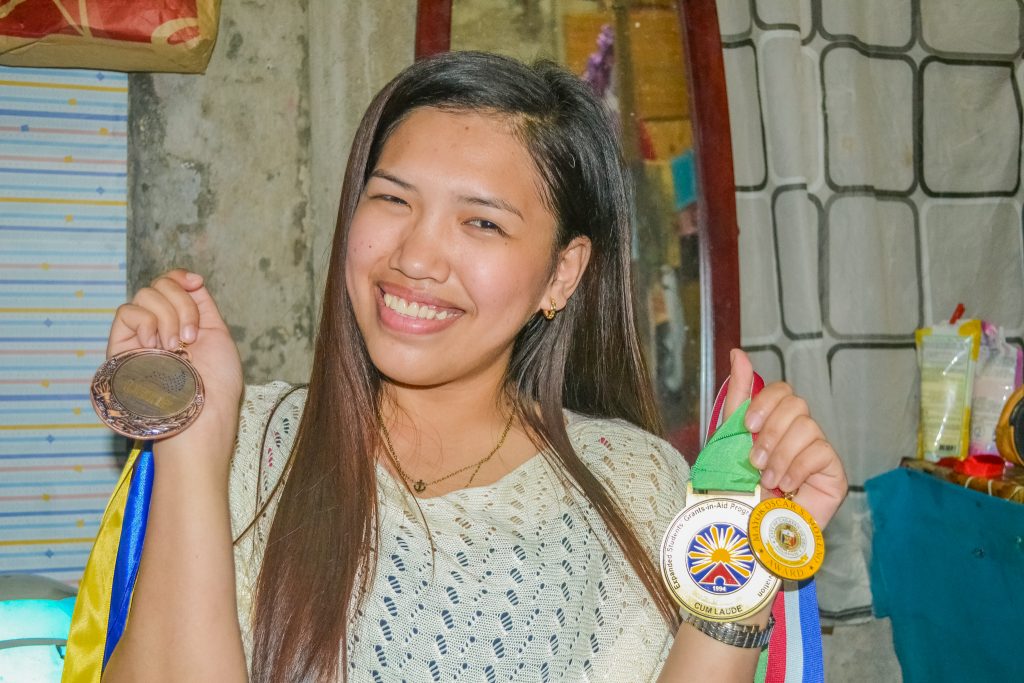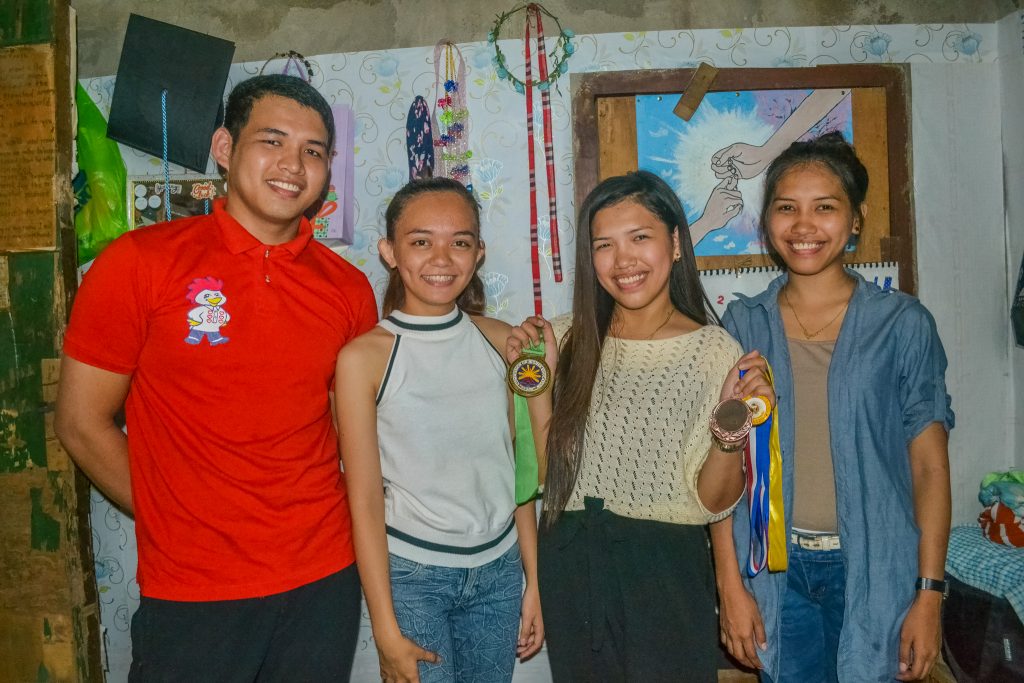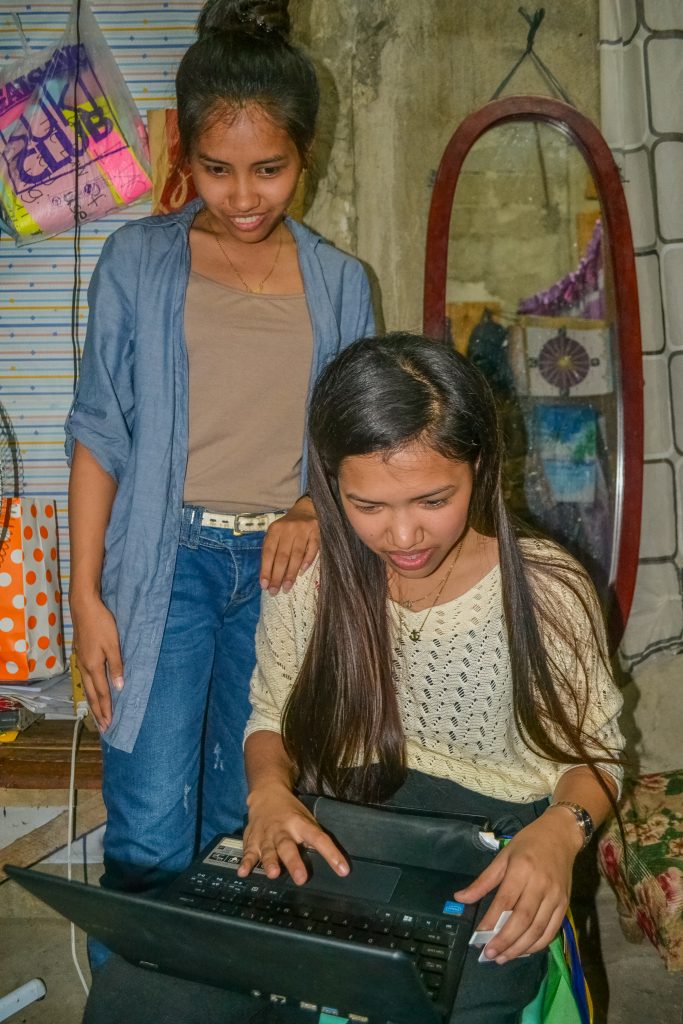
Cagayan de Oro City — Success belongs to those who try to take every opportunity that comes their way, even if they fail than by regretting for not trying. Pantawid Pamilyang Pilipino Program (4Ps) beneficiary Sheremie Canunayon, 20, believes in this.
Finishing a degree in Bachelor of Science in Secondary Education majoring in Mathematics, Sheremie received the highest honors as Cum Laude during the recent commencement exercises of the University of Science and Technology of Southern Philippines – Main Campus here.
Second to the last or sixth of the seven Canunayon siblings of Purok Sunflower B, Bal-ason, Gingoog City, Misamis Oriental, some 136.50 kilometers east off the city; Sheremie did not expect to earn such honor during her graduation.
“I didn’t expect to receive such award. What I did was I never wasted the opportunity given to me by DSWD (Department of Social Welfare and Development) and CHED (Commission on Higher Education) through the Expanded Student Grant-in-Aid Program for Poverty Alleviation (ESGPPA). I worked and studied hard to make my family happy,” she said.
When she was in her early elementary years, Sheremie claimed that she was anti-social. She didn’t want to make friends with most of her classmates. She was aloof.
However, she was quick to add that she only had few friends, who were also academic achievers like her.
It was during their frequent group studies that made her realize that she needed people around her, to support her in reaching her goals.
Sheremie disclosed that her teacher in high school inspired to participate in school and community activities to further honed her skills and abilities. This made her more active in school and in her community.
The close supervision of her parents and teachers in high school, she claimed, slowly changed her ways before, from being aloft to being participative in school and friendly with people around her.
‘ESGPPA a good investment in education’

Sheremie considers her degree as a ticket to live out of poverty.
A scholar of ESGPPA since her first year at USTP, Sheremie said the program is “something that every 4Ps beneficiaries must be proud of.”
She said both ESGPPA and Pantawid Pamilya are good investments of the national government to the poor families, adding that, “education is my ticket to live out of poverty.”
Like any Pantawid beneficiary, she experienced difficulties in life. It never occurred to them that anyone in the family could reach college. Yet the sheer determination has been her driving force to finish her studies.
“I was so lucky then that I was included in the list of ESGPPA scholars. Because of that, my dream became a reality, big time,” Sheremie shared.
She did excel in her studies and even in extra-curricular activities. Despite her rather hectic schedule, she found time to be with her family to go to church.
Sheremie hoped that 4Ps will continue to help more indigent students to finish a college degree and make their dreams come true like her.
Sheremie is one of the 1,940 ESGPPA scholars in Northern Mindanao.
The Commission on Higher Education (CHED) and Department of Social Welfare and Development (DSWD) spearheaded the implementation of ESGPPA.
A student-grantee receives a maximum of P60,000 scholarship grant per school year or P30,000 per semester. This is broken down to P20,000/year Tuition Fee Cost, P5,000/year Textbook Fees and other learning materials, and P35,000 (that is, P3,500/month x 10 months) stipend (for board and lodging, transportation, clothing, health/medical needs, basic school supplies and other related costs.

The 4Ps is a human development measure of the national government that provides conditional cash grants to the poorest of the poor, to improve the health, nutrition, and the education of children aged 0-18. It is patterned after the conditional cash transfer (CCT) schemes in Latin American and African countries, which have lifted millions of people around the world from poverty.
The DSWD is the lead government agency of the 4Ps.
Pantawid Pamilya is only one of the poverty reduction strategies of the national government implemented by the DSWD, with the primary aim to break the intergenerational poverty cycle.
In Northern Mindanao, there are more than 270,000 household active beneficiaries of the program.


